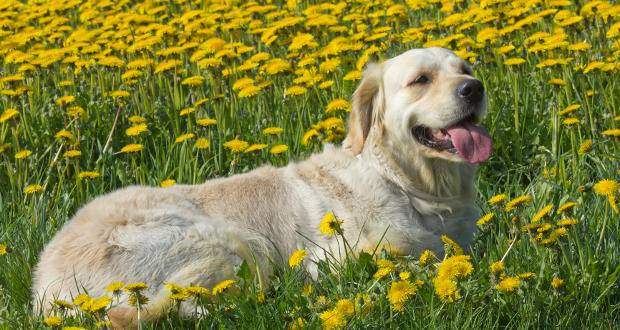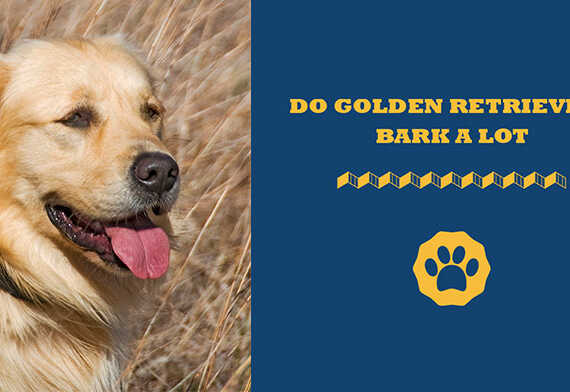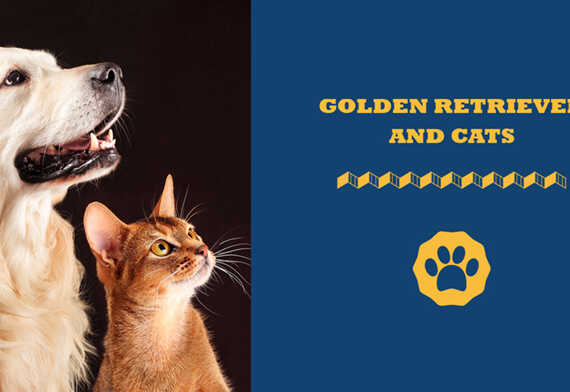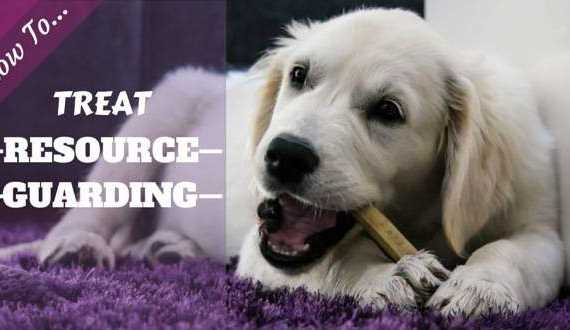Updated: August 15th, 2022
This article contains affiliate links. Read the full disclosure here.

© Depositphotos.com / frank11
Due to many, many thousands of years of evolution, all animals are born with a set of natural instincts and drives that compel them to actions essential for surviving in life.
A dogs instincts are skills and abilities they’re born with so they can undertake a particular task without first having to be shown or learn how.
For example, a dog will automatically bark at approaching animals to warn of danger, or know to suckle from their mother without being shown how first.
Whereas a dogs drives are hard-wired irresistible urges that compel them to perform certain actions. Urges so strong that a dog almost has to satisfy them to not go mad.
For example, the drive to eat and the drive to mate and reproduce.
Drives provide the motivation for a dog to want to do something, while instincts provide the skills to be able to satisfy the drives.
Why Is This Important To You?
As a Golden Retriever owner, you should know the more important instincts and drives as they are what shapes your Goldens behavior. With this knowledge you can begin to understand why your dog does certain things.
And importantly if your dog does something that you don’t like or agree with, but you understand why, you can be more understanding and better armed to find an alternative outlet for their desires.
many canine instincts and drives cause behaviors that we find unsavory (to say the least) but are completely natural to a dog. Things like scenting their territory, eating poop and chasing small animals. Completely natural for a dog but things we wished they didn’t do.
The first step towards changing and re-directing behaviors into more acceptable things starts with understanding why they occur.
In later articles I will discuss how to shape our Goldens behavior. But first, this article is a little on why they do what they do.
8 Natural Instincts And Drives That Shape Your Goldens Behavior
Following is a list of the more important and strongest drives commonly seen in our dogs and how they may affect your Goldens behavior.
I’ve linked to a few detailed resources at the end of the post for those who’d like a deeper read on the subject
Food Drive
A dog has to eat to survive and so it comes as no surprise that the food drive is high in most dogs as it is in nearly all animals.
Golden Retrievers have a high food drive which is good for us as it means we can use tasty food treats in our training and they will be very willing to work to get them.
A big problem associated with this high food drive though is that Goldens are very prone to obesity. They like to eat, eat, eat and just do not know when to stop. So you have to monitor their weight and food intake to keep them athletic and healthy.
Retrieve Drive
As you may guess from their name, Golden Retrievers have a very high retrieve drive and love to fetch and bring things back for their pack members.
Some say this is a fragile drive though that shouldn’t be over-used when they’re young, but gradually nurtured from 6 months on instead.
But anyway, a high retrieve drive is what makes them so fantastic in hunting pursuits and for playing fetch if they’re a family pet. They will fetch all day every day if they could!
Prey Drive
Prey drive is what spurs your dog to chase and kill prey.
Although most pet dogs have lost the urge to actually make the kill, the prey drive is still very strong and they just love to chase fast-moving objects.
So if your golden loves to chase squirrels, cats, even noisy motorbikes, this is the drive that’s responsible.
Prey drive is high in Goldens. To keep it in check you want to socialize them to a wide variety of other animal species when they’re a puppy and re-direct their chasing behaviors into games of chase and fetch. Or of course gun dog training 😉
Pack Drive
The pack drive is responsible for making animals crave belonging to a pack or a family, to want and need to be around others and work with and for others.
Goldens are high in pack drive and this makes them want to follow their owners around all the time and constantly be by their side. It’s what makes Goldens such great family pets!
A benefit of a high pack drive is it makes a dog more trainable. They actively try to please their owners to earn praise, reward and feel a useful part of the family.
A downside can be it makes a dog more clingy and can lead to separation anxiety. You need to teach a golden that it’s OK to spend some time alone from an early age or they become too dependent on your company and find it hard to spend time alone.
Play Drive
This is the urge to let go, hang loose and have some fun!
Puppies are born with a very high play drive that lessens as they age but Goldens hang on to it far longer than most breeds, especially if well socialized, happy and live with playful owners.
In fact it’s often said that Goldens are one of the last breeds to mature, not occurring until way after 3 years of age. Of course physically they look mature at 1 year old, but mentally and attitude wise they’re not truly mature until 3yo+.
Defense Drive
Defense drive is high in all animals and is most important for survival. More commonly seen written as the response of ‘fight or flight’, it’s the two instinctive reactions an animal will take when faced with something that’s perceived as a threat.
If the fight drive is strong, a dog will prefer to stand their ground and fight rather than run away.
If the flight drive is strong then a dog would prefer to run from danger if the option is available.
Most Goldens would prefer to flee than fight but will definitely fight if cornered. But they’re a very gentle breed known for being extremely patient, placid and happy at almost all times. Fighting really isn’t in their nature.
Territorial Drive
Territorial drive is responsible for dogs wanting to protect the area they see as theirs, to protect their family and the home they’re in by scaring away any animals or people they see as a threat.
This drive isn’t very high in Golden Retrievers at all. Some will bark at approaching strangers to the garden gate or front door of the home, and this can be trained into them, but once the person gets close they’re more likely to lick them to death than attack them.
Goldens are just too friendly to be guard dogs and defend a territory.
Guard Drive
This drive is responsible for ‘resource guarding’ that is the bane of some unlucky owners lives.
A dog high in guard drive wants to protect anything they see as theirs and prevent anybody taking objects away from them.
Dogs high in guard drive will growl and snarl if you try to take a toy or their food bowl away from them. It’s a natural response as in the wild resources aren’t always plentiful and you need to protect and hang on to what you have.
This is common in Goldens but is easily trained out of them if you start as a puppy and it’s recommended you do.
This List Is Far From Complete!
There are many, many drives have been identified in dogs that are the cause of certain behaviors.
I’ve discussed the main important ones above, but for those of you interested in reading the subject in more depth, the following articles cover the subject very well:
- What drives your dog? – SiriusK9training.com
- Drive and Instinct: Harness the benefits for training your dog and you! – From ‘training your dog and you.’
Conclusion
Your Goldens instincts and drives are responsible for all his behaviors. It’s what spurs him on and gives him the urges and needs to perform certain behaviors.
Some of these we may not agree with, some we like and wish to amplify. But whatever it is you should understand that instincts and drives are hard-wired into your Golden and there are certain things they have to do, it’s in their nature.
Drives can be lessened or re-directed into more acceptable behaviors, but they can never be completely removed.
It’s important to understand this so you’ll be more forgiving of your Goldens behavior because you know it’s in their nature. And you can plan to satisfy their drives and needs in ways that are more acceptable to you if problem behaviors arise.




9 Comments
Beccy Radcliffe
You’ve forgotten sex drive which is one of the most driving forces there are in a male dog when there’s a bitch in heat around! Otherwise, a nice and informative article! I’m enjoying the site so far, thank you 🙂
Wendy
Hi Beccy,
You’re absolutely right, sex drive is extremely powerful and can completely take over the minds of ‘complete’ dogs around bitches in heat. I will try to go back into the article when I get a spare 20 minutes and add that in. Thank you for the feedback and your comment 🙂
Pat
Very informative articles for the owner of two 7 month old female Goldens! Thank you!
Wendy
Thank you for the kind words Pat, I’m glad you found it useful 🙂
Dawn
Why does my 7 month old Golden retriever puppy just run right over you forcefully like your not even there ..even if you are just sitting at the table or standing in the doorway it’s like I’m not even there
Wendy
Hi Dawn,
I guess it’s a lack of respect for peoples personal space. I’m afraid I’ve nothing written on this just yet and the advice would be waaaay too much to write in a simple comment, it would need an extensive article, so I can only recommend googling for ‘how to teach a dog to respect my personal space’ and ‘how to stop my dog running into me’. Sorry I can’t be of more help.
Irene Conley
My neice has a Golden and a Border Collie. They’re great friends.
The Golden (Cooper) has a bad habit “eating poop”. (Gross) I know the quick solution is to pick it up, but they have a larger area of ivy. The Dogs like to go to that area.
Since I’m only at their home four times a week I can’t pick up the rest of the time.
Is Cooper missing something in his diet or is their something else we can do? Thanks
Wendy
Hi Irene, one theory is a dog eating poop is missing something from their diet,b ut it’s only one theory. It would be too much to try and write in a short comment here, so please try reading this and see if the advice is useful: http://www.dogsnaturallymagazine.com/16-reasons-dogs-eat-poop-and-what-to-do-about-it/
Sharon Loudenslager
my 1 year, 3 month old Golden is very restless in the evening. She attends doggie day care twice a week, gets walked every day, I play with her inside and outside. What more can I do to get her to settle down??